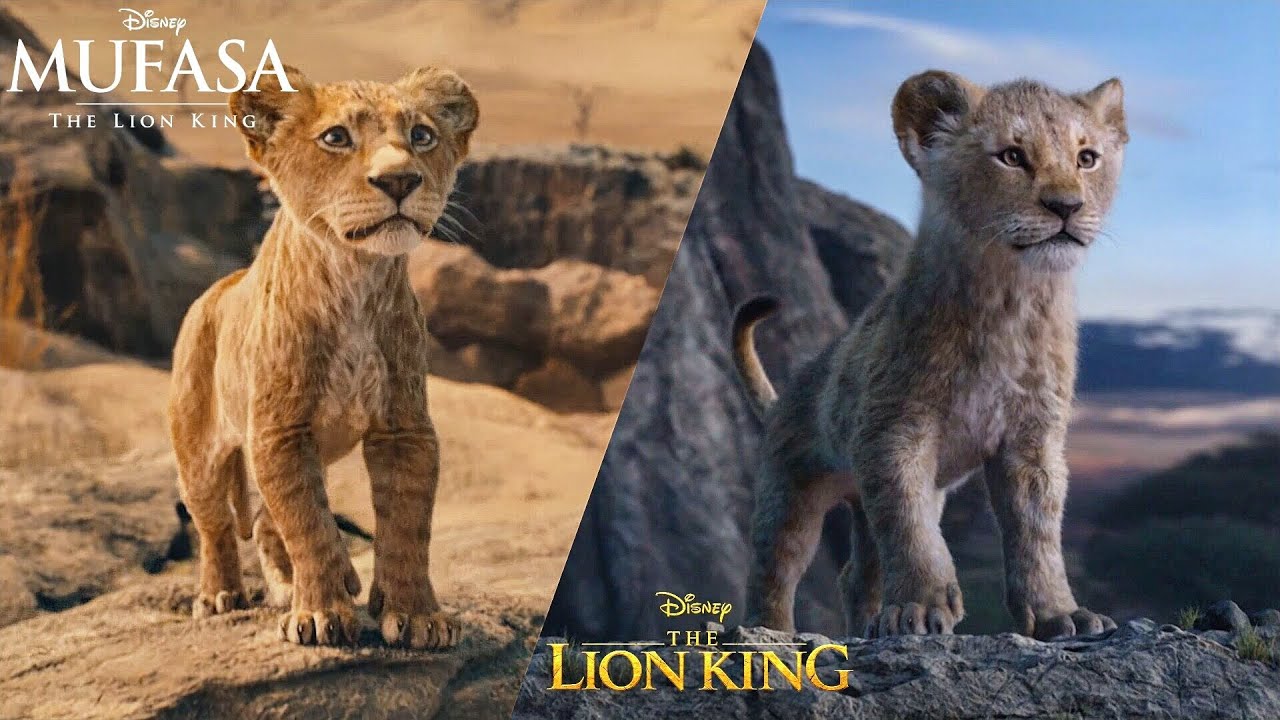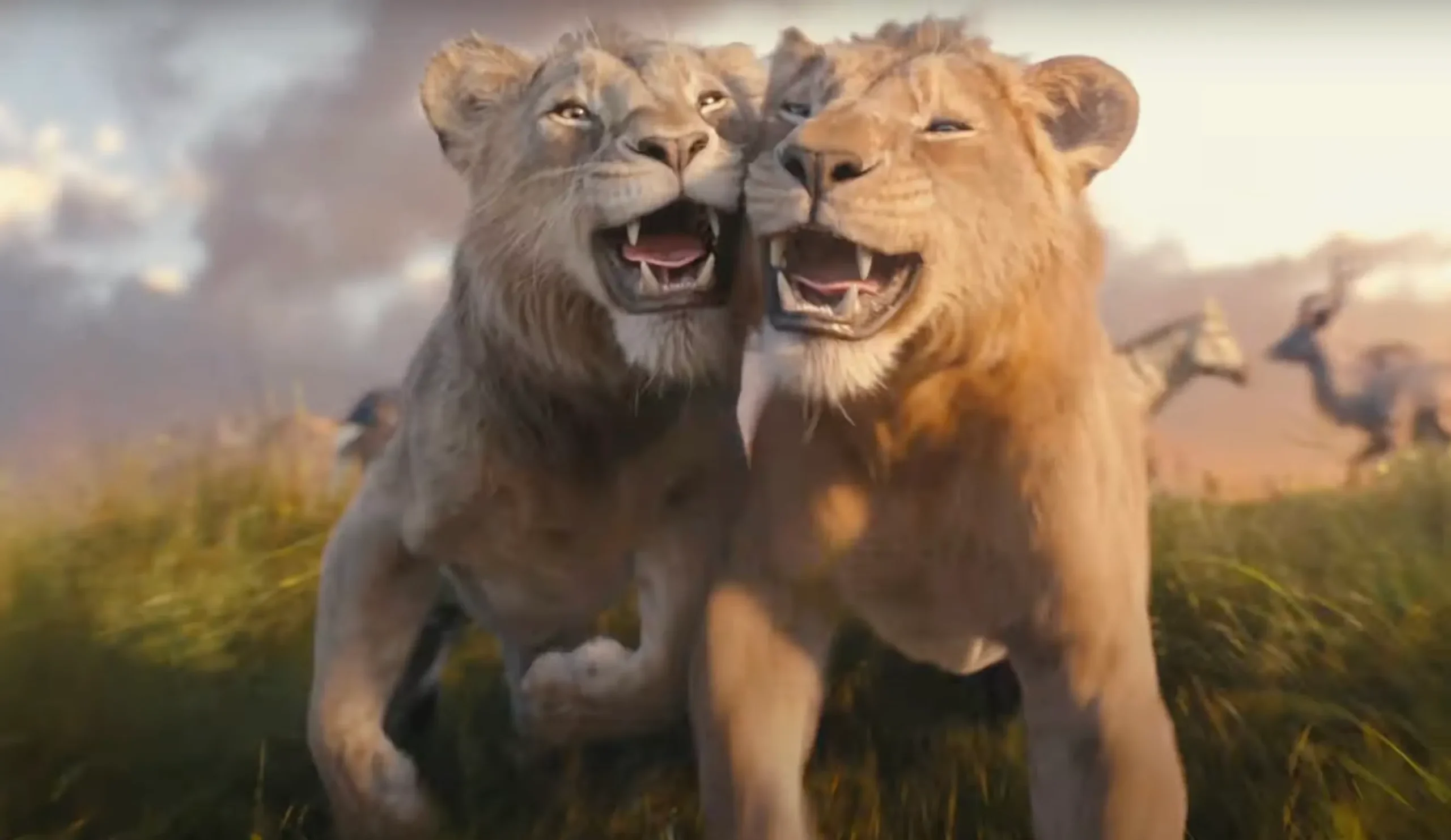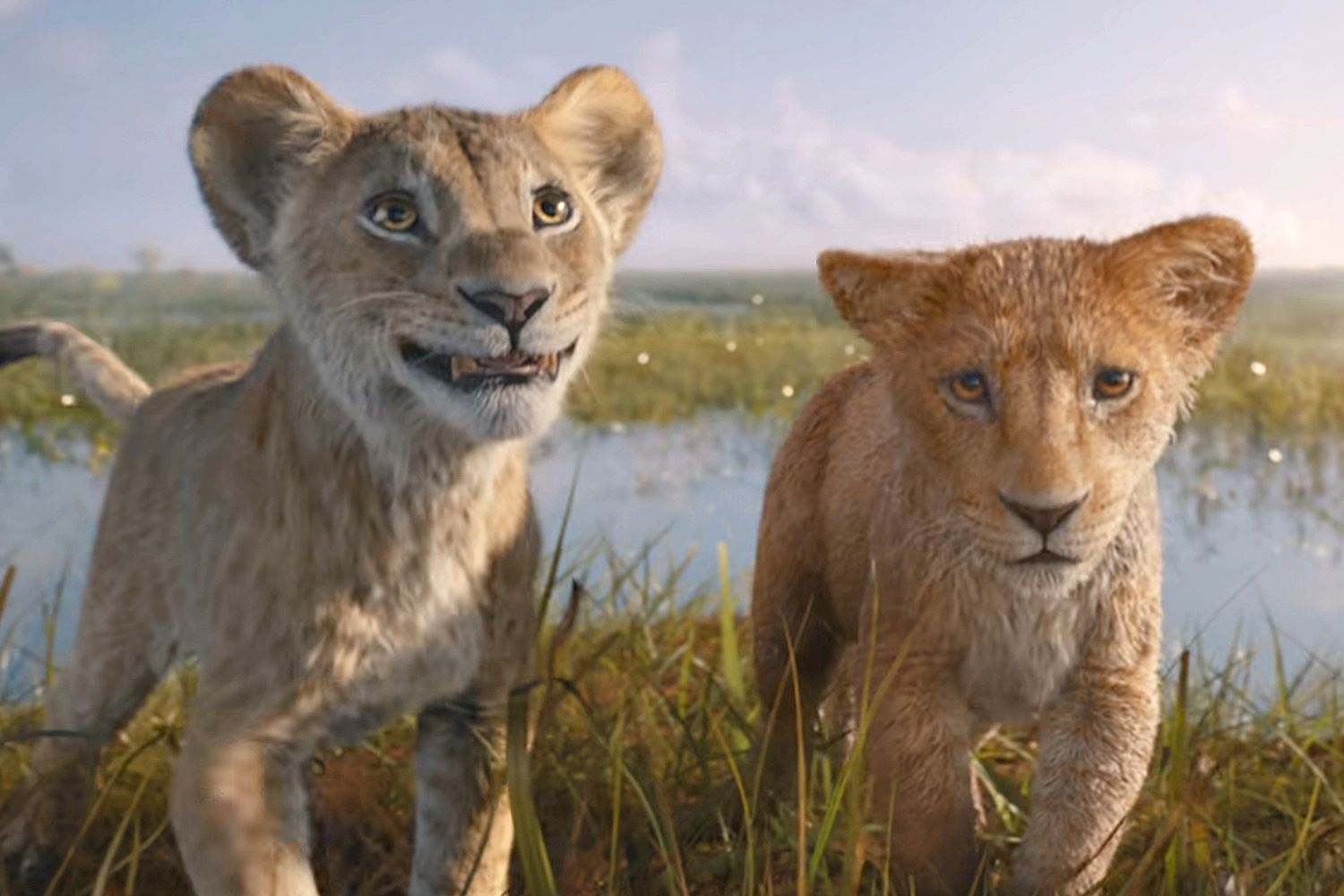Mufasa: The Lion King (2024)

Review: Mufasa: The Lion King (2024)
A Visually Stunning Yet Emotionally Hollow Prequel
In Mufasa: The Lion King (2024), Disney takes audiences back to the Pride Lands, exploring the untold origins of Mufasa, the beloved king introduced in the original The Lion King. Directed by Barry Jenkins, the film delves into Mufasa’s journey from a young, orphaned cub to the legendary ruler we remember. While the prequel boasts breathtaking visuals and moments of heartfelt storytelling, it struggles to justify its existence, leaning heavily on nostalgia and familiar themes.
Plot Overview
The narrative follows a dual timeline structure. In the present, an older Timon (Billy Eichner), Pumbaa (Seth Rogen), and Rafiki (John Kani) recount Mufasa’s life to a new generation of animals. Their tale reveals Mufasa’s humble beginnings as an orphaned cub navigating the harsh savannah, his adoption into a lion pride, and his eventual rise to greatness.
The story also explores his relationship with his brother, Taka (later known as Scar), whose jealousy and ambition plant the seeds of their future rivalry. As Mufasa faces trials that test his courage, loyalty, and sense of self, he learns what it truly means to lead with wisdom and compassion.
The Good: Stunning Visuals and Themes
1. Visual Excellence:
Much like its 2019 predecessor, Mufasa: The Lion King shines in its visual presentation. The hyper-realistic animation brings the Pride Lands to life, capturing the beauty of the African savannah with meticulous detail. From sweeping landscapes to intimate character moments, every frame feels like a work of art.
2. A Fresh Perspective on Mufasa:
By delving into Mufasa’s origin story, the film adds depth to his character, portraying him as a lion who rises from nothing to greatness. His journey is framed as one of resilience and self-discovery, offering a relatable hero’s arc.
3. Themes of Leadership and Legacy:
The film explores the burden of leadership and the sacrifices it entails. Mufasa’s struggles to reconcile his personal desires with his responsibilities as a future leader resonate as a universal theme, adding emotional weight to his journey.
4. Barry Jenkins’ Direction:
Jenkins, known for his work on Moonlight and If Beale Street Could Talk, brings a sense of intimacy and gravitas to the story. His focus on character relationships and emotional beats elevates the film beyond mere spectacle.
The Weaknesses: Predictable and Overly Nostalgic
1. Overreliance on Nostalgia:
While the film attempts to stand on its own, it often relies on callbacks to the original Lion King. Familiar visuals, musical motifs, and narrative parallels sometimes feel like a crutch, detracting from the prequel’s unique identity.
2. Lackluster Supporting Characters:
While Mufasa’s character is fleshed out, many of the supporting characters—particularly Taka—feel underdeveloped. Scar’s motivations are hinted at but lack the complexity needed to make him a compelling antagonist in this context.
3. Uneven Pacing:
The dual timeline structure occasionally hampers the film’s pacing. The frequent interruptions for Timon and Pumbaa’s comedic interjections, while entertaining, disrupt the narrative flow and diminish the emotional impact of key moments.
4. Underwhelming Music:
Lin-Manuel Miranda’s new songs, while serviceable, lack the grandeur and emotional resonance of the original soundtrack. Hans Zimmer’s score reprises some iconic themes, but these moments only underscore the absence of equally memorable new compositions.
Themes and Emotional Core
At its heart, Mufasa: The Lion King is a story about overcoming adversity and forging a legacy. The film emphasizes the importance of perseverance, community, and self-belief. However, its emotional beats occasionally feel rushed, preventing them from landing with the same impact as the original Lion King.
Cinematography and Direction
Greig Fraser’s cinematography once again elevates the visuals, blending the hyper-realistic animation with dynamic framing and lighting. Barry Jenkins’ direction shines in quieter, character-driven moments, but the film’s broader narrative often feels constrained by its need to align with the established Lion King lore.
Standout Performances
- Aaron Pierre as young Mufasa brings warmth and determination to the role, capturing the lion’s growth from an idealistic cub to a wise leader.
- Kelvin Harrison Jr. as Taka delivers a nuanced performance, though his character’s limited development diminishes its impact.
- Billy Eichner and Seth Rogen provide much-needed levity as Timon and Pumbaa, though their comedic moments sometimes feel out of place in the otherwise serious narrative.
- John Kani’s Rafiki remains a grounding presence, offering wisdom and humor in equal measure.
Final Thoughts
Mufasa: The Lion King (2024) is a visually stunning addition to Disney’s live-action repertoire, offering insights into one of its most iconic characters. While it successfully explores themes of resilience and leadership, the film’s reliance on nostalgia and uneven storytelling prevent it from fully standing on its own.
For fans of the Lion King franchise, Mufasa provides a heartfelt, albeit flawed, expansion of the Pride Lands mythology. However, casual viewers may find it lacking the originality and emotional depth needed to make a lasting impression.
Rating: 7/10
Mufasa: The Lion King is a worthy companion to the original but struggles to escape its shadow. It’s a story of courage and legacy that dazzles visually but leaves some emotional potential untapped.









